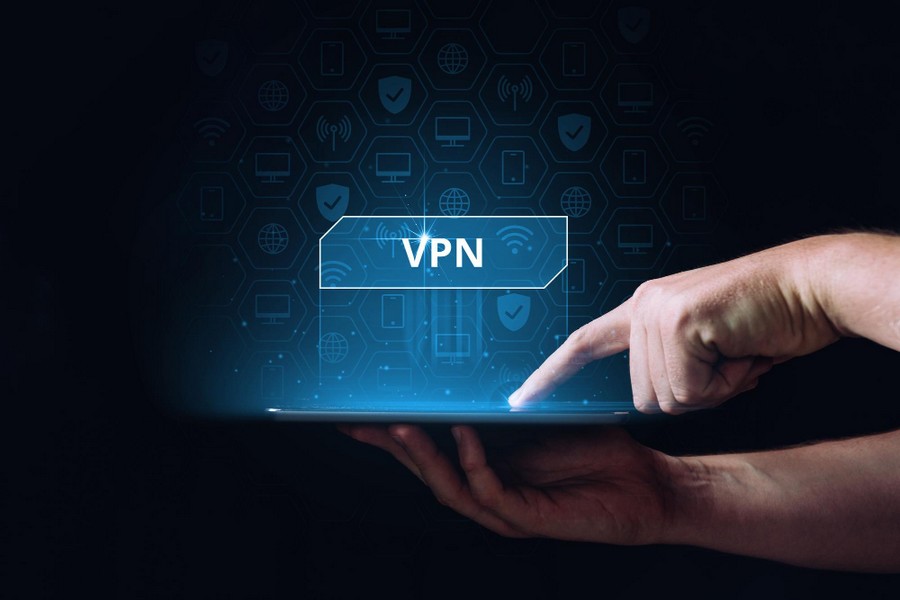
In today’s digital age, online privacy is a growing concern for many. VPNs, or Virtual Private Networks, can provide an extra layer of security while surfing the web. They encrypt your internet traffic, shielding your data from unauthorized access. This article delves into the benefits of VPNs, explaining how they empower you to browse the web with greater security and control. From data encryption to unrestricted access to geo-blocked content, VPNs offer a range of advantages that can transform your online experience.
Keep reading to discover surprising benefits that could change your online browsing forever.
What is a VPN?
A VPN, or Virtual Private Network, is a technology that creates a secure and encrypted connection over the internet. It allows users to securely access a private network remotely and helps protect their online privacy by masking their IP address. The different types of Virtual Private Networks include cloud and remote-access VPNs.
Definition
A Virtual Private Network is a tool that creates a private tunnel over the internet to secure your online activities. It works by rerouting your data through its servers and encrypting it in the process. This encryption makes it nearly impossible for anyone to intercept or understand your information. As you connect to the web through this virtual network, your real IP address remains hidden, safeguarding your identity and location.
By channelling your internet traffic through this secure connection, the VPN ensures that all sensitive data stays protected from prying eyes. Whether handling business documents or paying bills online, a VPN maintains confidentiality and prevents unauthorised access to personal information.
Purpose
A virtual network’s key purpose is to enhance online privacy and security. By masking your IP address, a VPN makes it challenging for anyone to track your online activities, providing an added layer of protection against hackers and cyber threats.
Additionally, virtual private networks enable users to access geo-restricted content and websites, ensuring unrestricted internet access while safeguarding sensitive information. Furthermore, these networks offer the benefit of safe and private browsing on public Wi-Fi networks, preserving user privacy even in potentially vulnerable settings.
Office workers can utilise VPNs for secure communication and data protection when accessing remote work servers from varied locations or utilising public Wi-Fi hotspots while working remotely.
Types of Virtual Private Networks
The various types of virtual private networks include remote access and SSL VPNs. These types differ in their characteristics, and the benefits users can reap from using them.
- Remote Access VPN: Allows individual users to connect securely to a private network remotely, ensuring secure access to company resources.
- Site-to-Site VPN: Connects entire networks across different locations, enabling secure communication between offices or sites.
- SSL VPN: Utilises the Secure Sockets Layer protocol to establish a secure connection over the internet, commonly used for secure remote access to web applications and services.
- IPsec VPN: Offers advanced security features using the Internet Protocol Security protocol, providing strong encryption and authentication for data transmission.
- MPLS VPN: Uses multi-protocol label-switching technology to create a private network across multiple locations that is suitable for businesses requiring high-performance and secure connections.
- Mobile VPN: Designed for mobile devices, it ensures secure access to networks and data while on the go, protecting sensitive information on smartphones and tablets.
Top Benefits of VPNs
Enhanced online privacy, secure and encrypted internet connection, protection against hackers and cyber threats, access to geo-restricted content and websites, safe browsing on public Wi-Fi networks, and anonymised torrenting and file sharing are key benefits of using a virtual private network.
Enhanced Online Privacy
Using a virtual private network, you can conceal your real IP address, protecting your online activities. This prevents anyone from tracking your browsing habits and helps safeguard your private information from potential hackers. With the added benefit of encrypted internet connectivity, virtual private networks can be a valuable investment in securing your data.
VPN services also allow you to access geo-restricted content and websites that may be inaccessible due to location-based restrictions. Plus, while using public Wi-Fi networks or engaging in file sharing through torrenting, a virtual private network ensures that your online presence remains anonymous and secure.
Secure and Encrypted Internet Connection
VPN provides a secure and encrypted internet connection, safeguarding your online activities from prying eyes. This encryption ensures that sensitive information, such as passwords and personal data, remains protected against potential hackers or cyber threats.
A VPN allows you to access public Wi-Fi networks without fear of compromising your data security. This means you can browse the internet confidently while maintaining privacy on various devices, including phones and tablets. Furthermore, the encrypted connection allows for safe online transactions and browsing habits, providing peace of mind in an increasingly interconnected digital world.
Protection Against Hackers and Cyber Threats
VPNs shield your online activities from hackers and cyber threats by encrypting your internet connection. This encryption cloaks sensitive information, making it nearly impossible for hackers to intercept or access it.
Additionally, they mask your IP address, preventing cybercriminals from tracking your online movements and accessing personal data. Using a virtual private network fortifies your defences against potential security breaches.
Moreover, VPNs offer an added layer of protection when conducting sensitive transactions or communicating confidential information online. This heightened security ensures that you can carry out tasks securely without the fear of being compromised by hackers. Strengthening your digital privacy is crucial in today’s interconnected world, where cybersecurity risks abound.
Access to Geo-Restricted Content and Websites
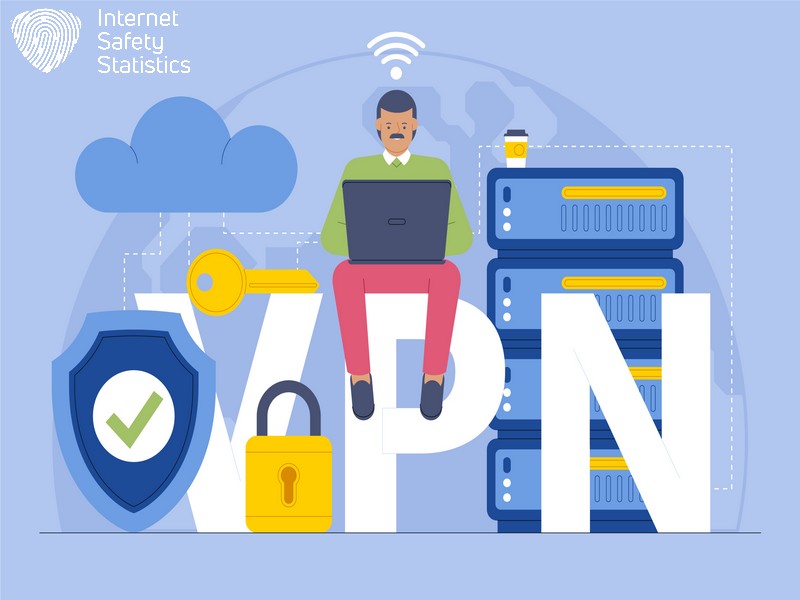
Virtual private networks allow you to bypass geo-restrictions and access content and websites that may be blocked in your location. This means you can enjoy streaming services, access foreign news sites, or use region-locked applications regardless of location. With the ability to change your virtual location, you can unlock a world of new online content and experiences.
Bypassing geo-restrictions allows for greater freedom in accessing global entertainment and information resources. By connecting to servers abroad, users can easily access restricted content from different regions while maintaining privacy and security online.
Safe and Private Browsing on Public Wi-Fi Networks
VPNs provide a secure and encrypted internet connection when connecting to public Wi-Fi networks, safeguarding your sensitive information from potential hackers. By masking your real IP address, virtual private networks make it difficult for anyone to track your online activities, ensuring safe and private browsing. This anonymity also prevents hackers from intercepting sensitive data, offering peace of mind while using wireless connections in public spaces.
VPN technology is especially beneficial for parents, office workers, and internet users seeking to maintain privacy while accessing the internet. Whether protecting personal data or strengthening security when connecting to unfamiliar networks, virtual private networks offer a reliable solution for safe and private browsing on public Wi-Fi networks.
Anonymised Torrenting and File Sharing
Anonymised torrenting and file sharing through VPNs provide a secure way to exchange files without revealing your identity. This privacy protection allows you to share and download content without the risk of being tracked by third parties, ensuring your online activities remain confidential.
With the added benefit of data encryption, virtual private networks offer a safeguarded environment for torrenting and file sharing, protecting your personal information from potential cyber threats.
- Online Security.
- Privacy protection.
- Data encryption.
Advantages of Using a VPN
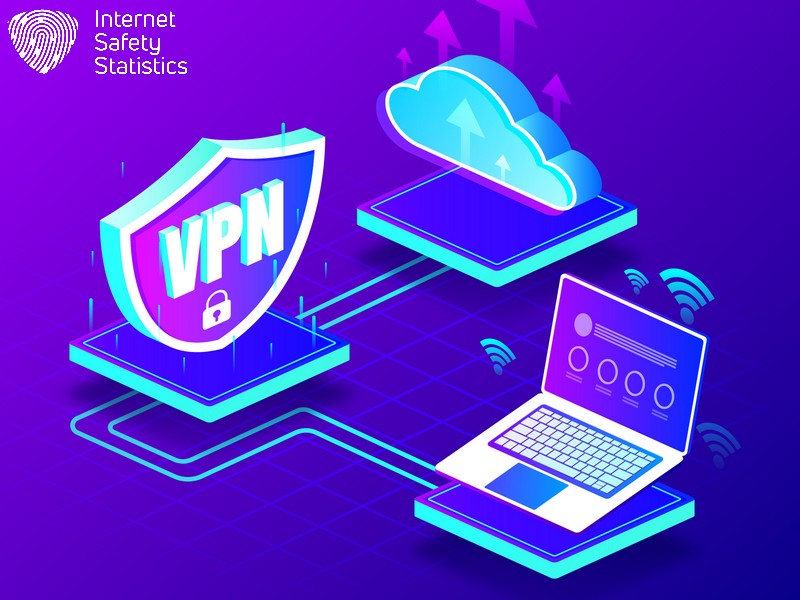
Enjoy improved security, enhanced privacy, unrestricted internet access and the ability to save money on online purchases with a VPN. Discover how VPNs can benefit you in more ways by reading on.
Improved Security
Enhanced security is a standout benefit of using a VPN. With a virtual private network, your internet connection becomes encrypted, ensuring that your sensitive data and online activities remain secure from cyber threats. This added layer of protection shields your personal information from hackers and other malicious entities, giving you peace of mind while browsing the web or conducting online transactions.
Furthermore, using a virtual private network can prevent unauthorised access to your network and avoid potentially tracking your IP address. This robust security measure not only safeguards your data but also provides extra protection when accessing public Wi-Fi networks, making it an essential tool for maintaining privacy and security in today’s digital age.
Enhanced Privacy
Ensure online privacy with a VPN, which hides your real IP address and safeguards your sensitive information from potential hackers. Using a VPN, you can overcome internet access restrictions and access geo-restricted content while keeping your online activities private and secure. Additionally, the encryption provided by VPNs helps to hide personal data, protecting it from interception by cybercriminals.
Protect sensitive information and ensure confidentiality online with a VPN that offers encrypted connections for all devices. Using a premium VPN is an investment in privacy that allows secure browsing on public Wi-Fi networks, which is essential for safeguarding personal data when using wireless data connections or even streaming on phones and Android devices.
Unrestricted access to the internet
Transitioning from enhanced privacy to unrestricted access to the internet, VPNs offer users the ability to bypass geographical restrictions and access content that may be blocked in their location. By connecting to servers in different countries, virtual private network users can unblock websites, streaming services, and social media platforms that may be restricted in their region. This allows individuals and businesses to enjoy unrestricted access to the internet without being limited by geographical boundaries or censorship.
Additionally, a VPN ensures secure browsing while accessing these geo-restricted sites, maintaining online privacy and anonymity. Virtual private network users can also benefit from having them available on phones and Android devices. With this technology, everyone – whether parents seeking safe online environments for their children or office workers needing secure remote access – can enjoy unblocked connectivity regardless of location.
Saving Money on Online Purchases
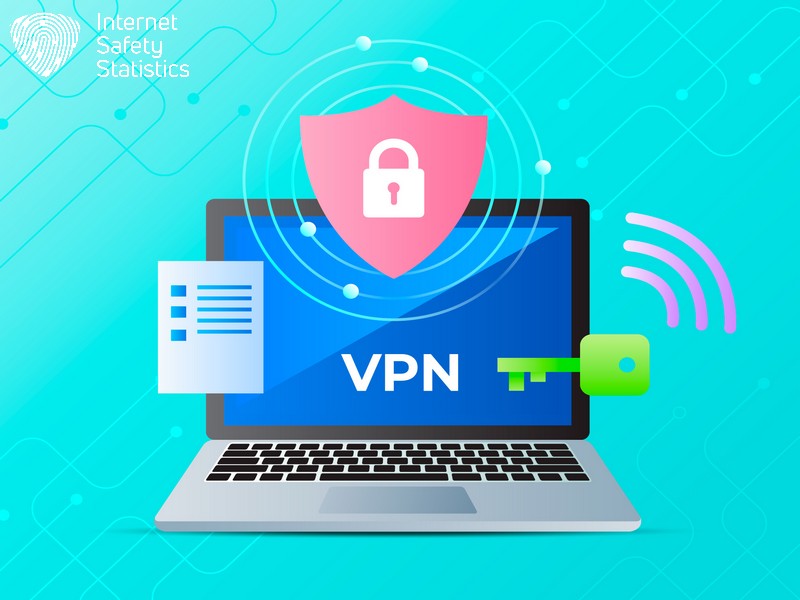
Using a VPN, you can save money on online purchases by accessing region-specific deals and discounts that may not be available in your current location. This is due to the ability of virtual private networks to bypass geo-restrictions, allowing you to appear as if shopping from a different location.
As a result, you may have access to lower prices or exclusive offers that can help reduce costs when making online purchases. Additionally, some websites may adjust prices based on the user’s geographic location, and using a VPN can prevent this practice from affecting your purchasing decisions.
With a VPN protecting your connection and enabling access to various geographical locations, savings opportunities for online shopping can be maximised. Furthermore, by masking your IP address and encrypting data traffic, a virtual private network creates additional security during online transactions, helping safeguard sensitive payment information.
Access to Native Websites
To fully maximise the benefits of using a VPN, you gain unrestricted access to native websites from anywhere in the world. This means that regardless of your location, you can easily access and navigate through region-specific websites and online services that may otherwise be restricted based on your location. With a virtual private network, you can browse local content and explore various platforms without limitations or barriers.
Moreover, internet users can bypass geolocation restrictions imposed on certain websites and streaming services by utilising a virtual private network service. This allows seamless access to native content specific to different regions or countries, providing an enhanced online experience across various platforms and ensuring complete anonymity.
Protection of All Devices
With a VPN, all your devices – from smartphones to laptops and tablets – can benefit from enhanced protection against cyber threats. This means that your data remains secure and encrypted whether you’re at home, in the office, or using public Wi-Fi.
By safeguarding all your devices with a virtual private network, you ensure your online activities are shielded from hackers and tracking attempts. With the added layer of protection on every device you use, you can browse the internet with peace of mind.
Moving forward, we will explore how virtual private networks provide unrestricted access to the internet while bypassing geo-restrictions to access global content.
Disadvantages of Using a VPN
Potential decreases in internet speed and extra costs associated with premium VPN services can be drawbacks, along with concerns about the legality of using a virtual private network and the dependence on a provider’s trustworthiness.
Potential Decrease in Internet Speed
Using a VPN could result in slower internet speeds, as the encryption and rerouting of your online traffic may cause some latency. However, this can vary depending on the virtual private network provider and your current internet connection.
It’s important to consider the trade-off between enhanced privacy and a potential decrease in speed when deciding whether to use a VPN for your online activities. Balancing these factors will help you determine if the benefits of using a virtual private network outweigh any limitations related to internet speed.
Consideration must be given to how much speed reduction is acceptable for your specific needs. Premium VPN services often offer faster connections with minimal impact on speed, making them worth considering for users who prioritise security and efficiency in their online experiences.
Costs Associated with Premium VPN Services
Premium VPN services may incur costs, yet they provide enhanced privacy and security, making them a valuable investment for online protection. While free VPNs are available, they often have limitations such as data caps and slower connection speeds.
Premium VPNs offer advanced features, including stronger encryption protocols and better server locations to ensure reliable performance. Although a cost is involved, the added layers of protection for your online activities make premium virtual private network services worth considering.
Investing in a premium VPN service can improve access to geo-restricted content and safer browsing on public Wi-Fi networks. It’s important to weigh the costs against the additional privacy measures provided by premium services, which ultimately contribute to safeguarding your sensitive information from potential cyber threats.
Dependence on VPN Provider’s Trustworthiness and Security Measures
Relying on your VPN provider’s trustworthiness and security measures is crucial for ensuring the safety and privacy of your online activities. A reputable virtual private network provider will implement strong encryption protocols, have a strict no-logs policy, and regularly update their security measures to protect your data from potential breaches.
Additionally, it is important to choose a VPN provider with a proven track record in safeguarding user information and upholding stringent privacy standards. By depending on a trustworthy virtual private network service with robust security measures, you can significantly reduce the risk of unauthorised access to your sensitive online information and maintain peace of mind while browsing the internet.
Ensuring your VPN provider prioritises trustworthiness and implements rigorous security measures is vital for safeguarding digital privacy. With cyber threats constantly evolving, it is essential to select a virtual private network service that employs advanced encryption techniques, offers secure connection options, and regularly audits its infrastructure for vulnerabilities.
Legality Concerns
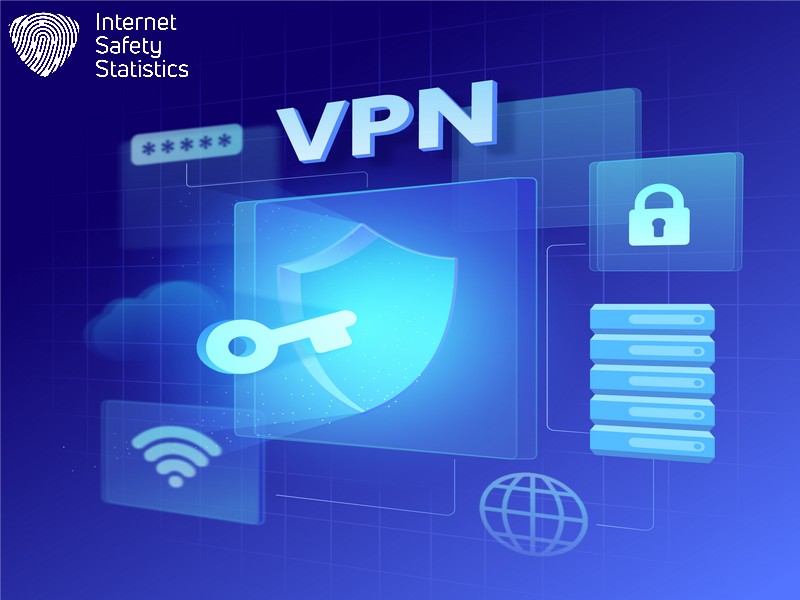
Using a VPN raises questions about its legality in certain countries, as some regions have restrictions or outright bans. It’s essential to check the local laws and regulations regarding VPN usage to avoid potential legal issues. In some cases, using a virtual private network may violate terms of service for specific websites and online services, so it’s crucial to be aware of these limitations. Additionally, while VPNs offer enhanced privacy and security benefits, they can be used for illegal activities such as copyright infringement or illicit content access.
Users must understand the benefits and risks of using a virtual private network and ensure compliance with relevant laws and regulations. Parents looking to safeguard their children’s online activities should consider the legal implications surrounding VPN usage in their region. Office workers relying on VPNs for secure remote access must adhere to local laws governing their use.
In conclusion, VPNs offer a secure and encrypted internet connection, protecting sensitive information from hackers. They also provide access to geo-restricted content and websites, preserving privacy on public Wi-Fi networks. With the ability to hide personal data and protect against cyber threats, virtual private networks play a crucial role in enhancing online privacy for users across various devices and platforms.
FAQs
1. What benefits do VPNs offer for online privacy?
VPNs enhance online security by masking your IP address, allowing anonymous browsing, and providing Internet protection, especially on public WiFi.
2. Can a VPN help with accessing restricted content?
Yes, a virtual private network can help you bypass restrictions on the internet to access content that may not be available in your region.
3. How does using a VPN provide better security when working remotely?
By creating a secure tunnel for data transmission, a virtual private network ensures remote access and network security for those working away from the main office.
4. Will a VPN reduce my internet connectivity costs?
While a VPN doesn’t directly reduce connectivity costs, it secures your data transfer across networks, which could save money otherwise spent on dealing with cyber threats.
